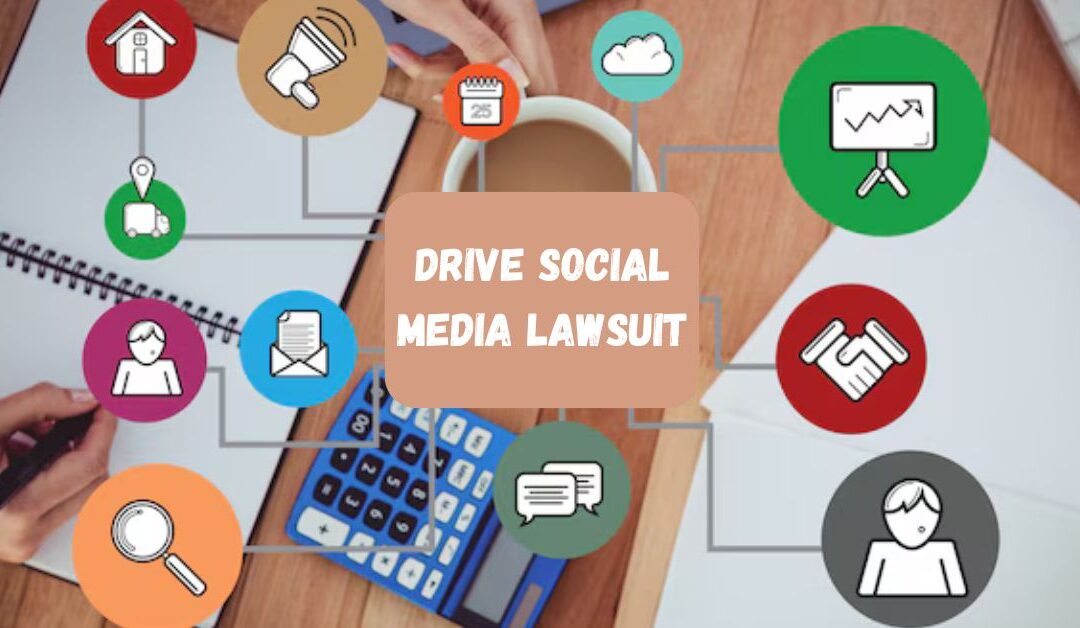Introduction
Social media marketing has become a key element of almost every business worldwide today, especially in the digital age we live in. Businesses use Facebook, Instagram, Twitter, and other platforms to improve brand recognition, get higher sales, and gain quality engagement from the target audience. However, when social media marketing firms do not deliver what was promised in terms of results, disputes arise, which end in a legal battle. One case has received a lot of publicity: the “drive social media lawsuit.” In this piece, we examine the lawsuit, its ramifications and its significance to the larger digital marketing space.
Background of Drive Social Media
Drive Social Media is a digital marketing agency focused on strategies in digital advertising, content and brand development. From fostering businesses to grow them by running social media campaigns, the company has carved out a niche amongst the crowd. Drive Social Media uses data analytics and audience engagement strategies to help clients promote their businesses most effectively, according to the site.
However, there are still legal challenges for the well-known company. The drive social media lawsuit pertains to a succession of contract breaches, false advertising violations, and disputes concerning the services provided. Our clients feel like failed short and decided to sue the company.
Details of the Drive Social Media Lawsuit
It was born from some clients’ accusations that the company used deceptive marketing practices, to drive a “drive social media lawsuit.” One of the key points of the suit is that companies spent large amounts of money for services from Drive Social Media that were not delivering the expected return on investment. The companies that Drive Social Media worked with had several complaints, stating that the marketing campaigns launched were not consistent with their business objectives and resulted in loss of revenue.
A key issue in the lawsuit is whether misrepresentation occurred. The plaintiffs say that Drive Social Media misrepresented its ability to supply leads, conversions and brand exposure. Other companies alleged that the company used heavy-handed sales techniques to get companies to sign on the dotted line without properly disclosing terms.

Even more, the contractual disputes have been one of the biggest flash points in the so-called “drive social media lawsuit.” We heard from some clients who were stuck in multi-year contracts with little option to warm up to change. If they had tried to call off their contracts because performance was affected, they risked being involved in costly litigation.
Legal Arguments and Defense
The company has defended its practices in response to the “drive social media lawsuit”, claiming that there are no guaranteed results in social media marketing. Drive Social Media states that fluctuations in market trends, changes in audience behavior and adjustments in platform algorithm all play a critical role in the success of campaigns, making it impossible to predict definite outcomes.
The company’s legal defence also highlights how clients could agree to contracts only after going through the terms and conditions. Drive Social Media asserts that it performed all of its contracted services consistent with prevailing industry standards and that any alleged deficiencies constitute events or circumstances outside of its control.
In addition, the defense argues that it takes time for marketing to show results. One of the most common mistakes that businesses make is expecting the new strategy to work overnight, which in most cases does not happen, digital marketing campaigns can take months to begin to show significant returns. Drive Social Media claims many plaintiffs rejected their services while their campaigns were just getting started.
Read Also: Adsy.pw/hb5 A Comprehensive Guide to Its Features and Benefits
Implications of the Drive Social Media Lawsuit
Broader Implications For Digital Marketing Industry The implications of the “drive social media lawsuit” go beyond the case itself and ripples into the digital marketing industry. That would essentially mean that if the plaintiffs win, it could change the way social media agencies carried out social media action because they would be held accountable to their claims and deliverables. Conclusion: This case is a reminder of the importance of transparency, ethical marketing practices, and clear contractual terms between agency and clients.
The lawsuit could lead to greater regulatory oversight of digital marketing agencies a significant fallout from the suit. This could see authorities introducing stricter regulations on advertising, ensuring that agencies give clients a true idea of what to expect. Companies operating within the digital marketing space may need to revamp their agreements to include more flexible terms and transparent KPIs.
This lawsuit is a lesson for those businesses looking for social media marketing services. Companies should do research before hiring a marketing agency, pay attention to the terms before signing the contract, and not set expectations for the expected results of the campaign too high. Due diligence is vital to avoid legal battles and financial loss.
Lessons for Social Media Marketing Agencies
Even when its positioned in terms of the drive social media lawsuit it brings to light some important lessons for your social media marketing agency. Maintaining client trust and avoiding legal trouble requires transparency and honesty. Explain strategy as clearly as possible while supporting your rationale with data, and refrain from selling unrealistic results.
Agencies also need strong contract management. Fair, flexible, and well-documented contracts avoid misunderstandings and legal disputes. Providing performance-based pricing models might also increase client satisfaction and help limit lawsuits.
Another important aspect is communication. Open and consistent communication with social media marketing agencies is essential, ensuring clients receive timely campaign updates and responses to their queries. Such an approach can help avoid discontent and reinforce your ties with your clients.
Conclusion
The drive social media lawsuit is an example of a major case study in the digital marketing space. This serves to illustrate the perils and legal intricacies that arise from a situation when an agency does not live up to the expectations of the client. If Drive Social Media tries to justify its methods by pointing to uncertainties in the market, the lawsuit points to the importance of transparency, good business ethics and clarity in contracts.
The result of the case is likely to set industry standards and regulations, determining the future direction of social media marketing as the case unfolds. This legal battle teaches a strong lesson for both businesses and marketing agencies about trust, communication, and realistic expectations in digital marketing partnerships. Even if the plaintiffs win or lose, the “drive social media lawsuit” has started vital conversations around industry accountability and best practices.
Read Also: http://www.arlindmorina.info Exploring the Digital Universe of Innovation

